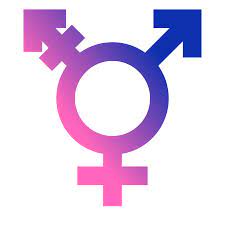Gender identity is a complex and often misunderstood concept that goes beyond the binary understanding of male and female. For many individuals, grappling with their gender identity can lead to various challenges that affect their mental and emotional well-being. This article explores the multifaceted nature of gender identity issues, the societal influences that shape our perceptions, and the importance of language and support systems for those navigating this intricate landscape.
Understanding Gender Identity: What Does It Really Mean?
At its core, gender identity refers to how individuals perceive themselves and what they call themselves in relation to gender. It can encompass a wide range of identities, including male, female, transgender, non-binary, genderqueer, and more. Unlike biological sex, which is determined by physical attributes, gender identity is more about personal experience and self-identification. This means that two people assigned the same sex at birth can have completely different gender identities.Science Behind TransgenderFree Forced Feminisation StoriesHow To Get Rid Of Estrogen In Males
Understanding gender identity is crucial because it forms the basis for how individuals relate to themselves and to the world around them. Many people experience a disconnect between their assigned gender and their true gender identity, which can lead to feelings of confusion, isolation, and frustration. Acknowledging and validating one’s gender identity is essential for personal acceptance and mental health.
Common Challenges Faced by Those with Gender Identity Issues
Individuals grappling with gender identity issues often encounter an array of challenges. One of the most significant hurdles is societal acceptance. Transgender and non-binary individuals may face discrimination in various settings, from workplaces to social interactions, which can severely impact their self-esteem and mental health. The fear of being rejected or misunderstood can lead many to hide their true identities, resulting in feelings of loneliness and despair.
In addition to societal challenges, many people with gender identity issues struggle with internal conflicts. This could manifest as anxiety, depression, or even suicidal thoughts, particularly if they do not feel safe or supported in expressing their identity. The journey of self-discovery is often fraught with obstacles, and without adequate support, it can lead to significant emotional distress.
The Role of Society in Shaping Gender Perceptions
Society plays a pivotal role in shaping our understanding of gender norms and expectations. From a young age, individuals are often socialized into rigid definitions of masculinity and femininity, which can marginalize those who don’t fit neatly into these categories. Media representations, cultural traditions, and institutional policies can all perpetuate narrow views of what it means to be male or female, further complicating the experiences of those with diverse gender identities.
Changing societal perceptions is essential for fostering an environment of acceptance and understanding. As more people share their stories and challenge traditional gender norms, society is slowly beginning to embrace a more inclusive view of gender. However, progress can be slow, and ongoing advocacy is necessary to dismantle harmful stereotypes and support individuals in expressing their true selves without fear of judgment.
Navigating the Spectrum: Beyond Just Male and Female
The traditional binary view of gender—male and female—does not adequately reflect the full spectrum of human experience. Many individuals identify as non-binary, genderfluid, agender, or other identities that fall outside the binary classification. Understanding that gender exists on a spectrum can help create a more inclusive dialogue about gender identity and recognition of diverse experiences.
Navigating this spectrum can pose unique challenges for individuals and their families. For those who identify outside the binary, finding a community that understands their identity can be vital. Open conversations about gender fluidity and non-binary identities can help raise awareness and promote acceptance, allowing individuals to express themselves authentically without conforming to societal norms.
The Importance of Language in Discussing Gender Identity
Language is a powerful tool in shaping our understanding of gender identity. The words we use can either foster acceptance or perpetuate stigma. Using inclusive and respectful language helps create an environment where individuals feel seen and validated. For example, adopting gender-neutral pronouns like "they/them" can provide comfort to those who do not identify strictly as male or female.
Moreover, actively listening and being open to learning about the preferred language of individuals regarding their gender identity can foster a culture of respect. When people feel that their identity is acknowledged through the use of appropriate language, it empowers them and contributes positively to their mental health and self-esteem.
Seeking Support: Where to Turn When You’re Struggling
For individuals wrestling with gender identity issues, finding appropriate support can be life-changing. LGBTQ+ organizations, community groups, and mental health professionals specializing in gender identity can provide valuable resources and a safe space for exploration. These support networks can be crucial for individuals seeking to understand themselves better and navigate their experiences in a loving and affirming environment.
Additionally, online forums and support groups can offer anonymity for those who feel uncomfortable seeking help in person. This digital age has opened avenues for connection, allowing individuals to share their stories and seek guidance from peers who have faced similar challenges. Finding a supportive community can make a significant difference in one’s journey toward self-acceptance and well-being.
Personal Stories: Real Experiences with Gender Identity
Personal stories offer a unique insight into the diverse experiences of those navigating gender identity issues. Many individuals share their journeys of self-discovery, describing the highs and lows of coming to terms with their gender. These narratives often highlight the importance of acceptance, both from oneself and from loved ones, and the profound impact it has on overall well-being.
Real-life accounts also illustrate the resilience of individuals who have faced adversity. Whether overcoming family rejection or societal discrimination, many people find strength in their authenticity and use their experiences to advocate for change, inspiring others who may be struggling to embrace their true identities.
Moving Forward: Embracing Inclusivity and Understanding
As society progresses towards greater acceptance of diverse gender identities, it is crucial to continue fostering an inclusive environment. Education and awareness are key components in this journey. Schools, workplaces, and community organizations must prioritize training and information sharing to better support those navigating gender identity issues.
Moreover, embracing inclusivity means recognizing and celebrating differences rather than simply tolerating them. By encouraging open conversations and promoting understanding, society can create a more supportive atmosphere where every individual feels valued and empowered to live authentically. Embracing diversity in gender identity contributes not only to individual well-being but also to the richness of human experience as a whole.
In summary, addressing gender identity problems requires understanding, empathy, and a commitment to fostering inclusivity. By learning about the complexities of gender identity, recognizing societal influences, using respectful language, and supporting those in need, we can create a world where everyone feels empowered to express their true selves. The journey may be filled with challenges, but with ongoing dialogue and acceptance, we can work towards a more understanding and compassionate society for all individuals, regardless of their gender identity.


